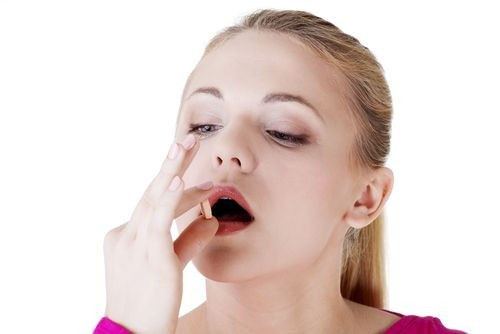FDA Deems Merck's Grass Allergy Drug Effective: Grastek Boosts Immune System, Lessens Allergen Sensitivity

In a market dominated by effective injections, Merck’s Timothy grass pollen allergy drug, Grastek, has been unanimously deemed safe by the Food and Drug Administration panel as an effective immunotherapy treatment for patients.
“We believe Grastek has the potential to be an important new oral therapeutic option for allergy specialists and their patients who continue to suffer with Timothy grass pollen induced allergic rhinitis and we look forward to continuing to work with the FDA as the agency completes its review of our biologics license application for Grastek,” read Merck’s press release.
The decision came after the advisory panel reviewed data from five phase I studies, two phase II studies, six phase II studies, and two studies identified as phase IV European studies. This data supports the efficacy of the drug in treating the grass pollen allergy in patients between the ages of 5 and 65.
However, the FDA’s agreement comes with the condition that autoinjected epinephrine will easily be made available by Merck to patients at home, Reuters reports. Epinephrine is a medicine used to treat possible serious allergic reactions such as those that can derive from the use of immunotherapies, also known as allergy shots.
One in five Americans suffers from all types of allergies including indoor/outdoor, food and drug, latex, insect, skin, and eye allergies with prevalence increasing across all age, sex, and racial groups. With Timothy as the most prevalent grass in North America, grass pollen is one of the most common allergens to provoke allergic symptoms.
Pollen Library says Timothy as one of the worst early-summer grass allergens, only trailing behind orchard grass. Like other grasses, Timothy grass pollen can be controlled by mowing the plants before they flower to reduce reactions such as allergic rhinitis, allergic conjunctivitis, and asthma.
In North America, immunotherapy is known to be the only treatment to have a long-term benefit and change the course of respiratory allergic disease. Although it does not cure allergies, it will lessen symptoms and reduce the number of allergic reactions.
Merck will face a challenge in convincing allergists to shift their patients from proven effective allergy shots to their new allergy drug. Shots tend to be cheaper and well-trusted by patients despite the fact that they are inconvenient and cannot be administered at home. ISI’s Mark Schoenebaum estimates Merck may not generate enough sales with the consensus of peak-sale estimate at around $150 million a year.
Grastek contains extracts of Timothy grass allergen and works by boosting the body’s immune system and making it less sensitive to allergens. The immunotherapy drug is administered under the tongue to help the body adjust to the allergen.
The panel did have some concerns in regards to the drug’s safety in children. They recommended post-approval studies of the drug to test its safety in children ages 5 to 11 years old, due to side effects such as lip swelling, throat irritation and tightness, and oral blistering. While the recommendations are taken into account while making a decision on approving a drug, the FDA is not obligated to follow them.
In Europe, Grastek is sold under the name Grazax and has been in the market since 2006. Each Grazax tablet contains 2800 bioequivalent allergy units of the drug substance with the recommended dose at one sublingual tablet daily, according to Medscape. Patients first begin treatment 12 weeks before and continue to do so throughout the grass pollen season with the first dose is given at the doctor’s office. The other doses can be taken at the comfort of the patient’s home. The tablet is said to dissolve in less than 10 seconds which can prove to be beneficial in young children.
Merck anticipates the FDA’s review of Grastek to be completed in the first half of 2014.
To learn more about immunotherapy, click here.



























